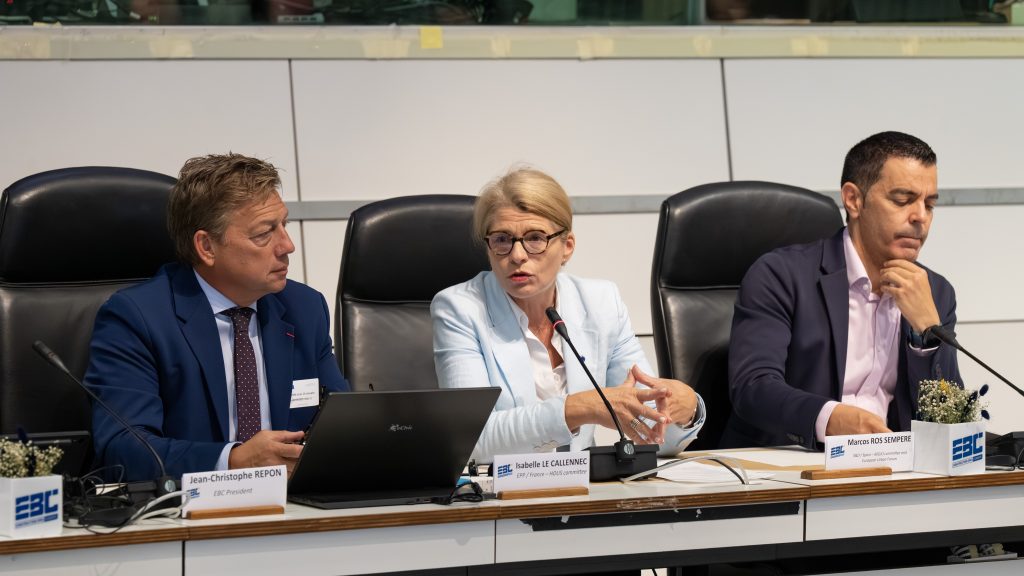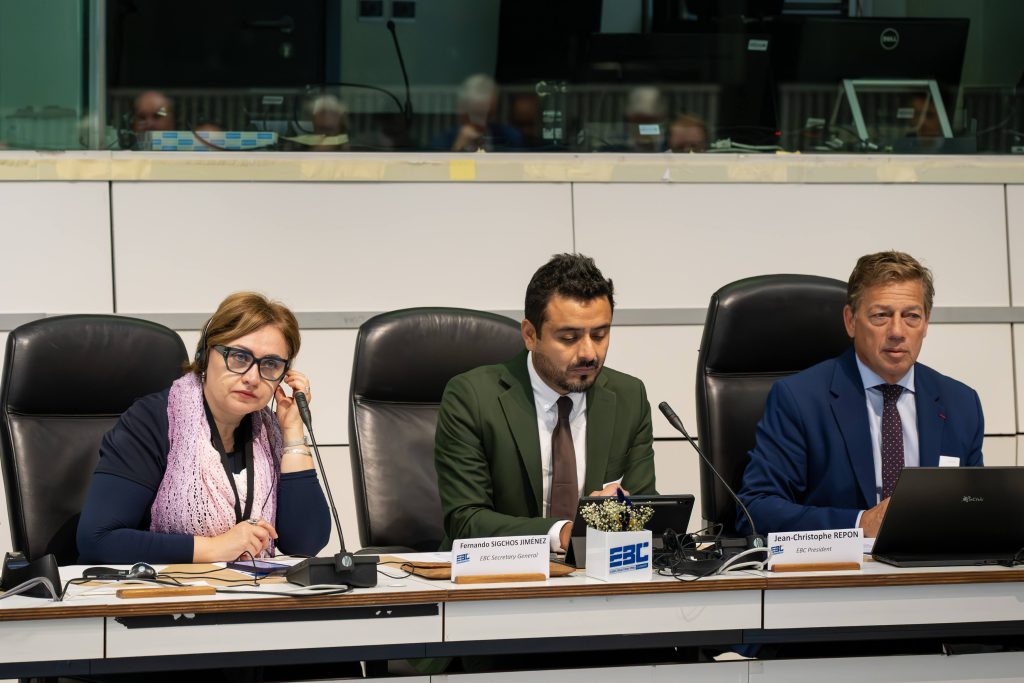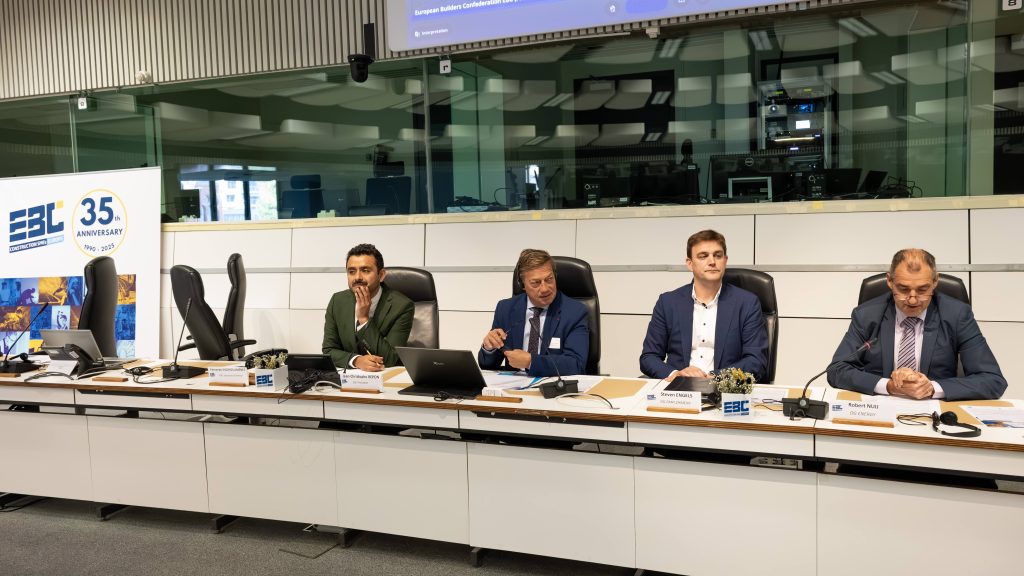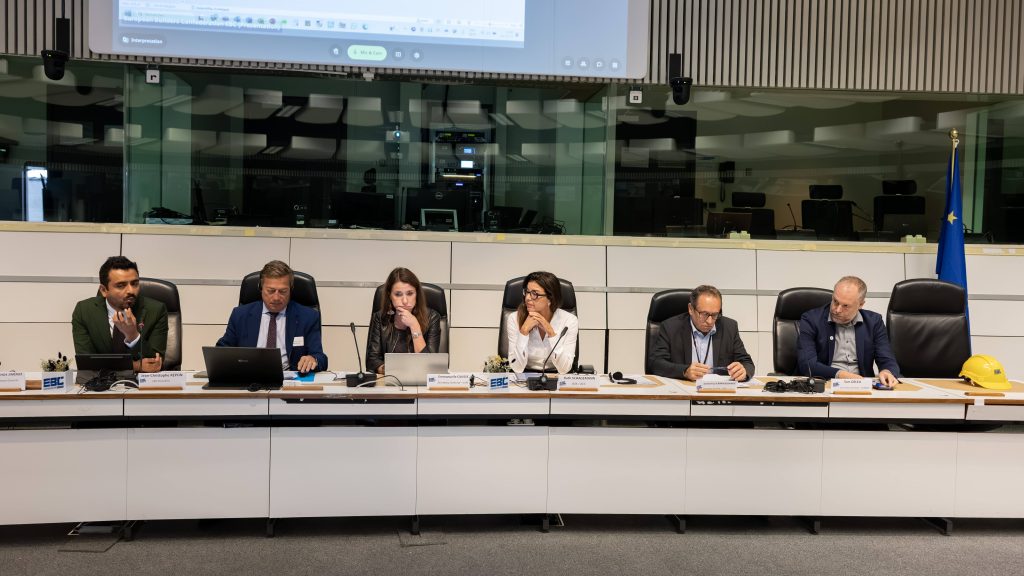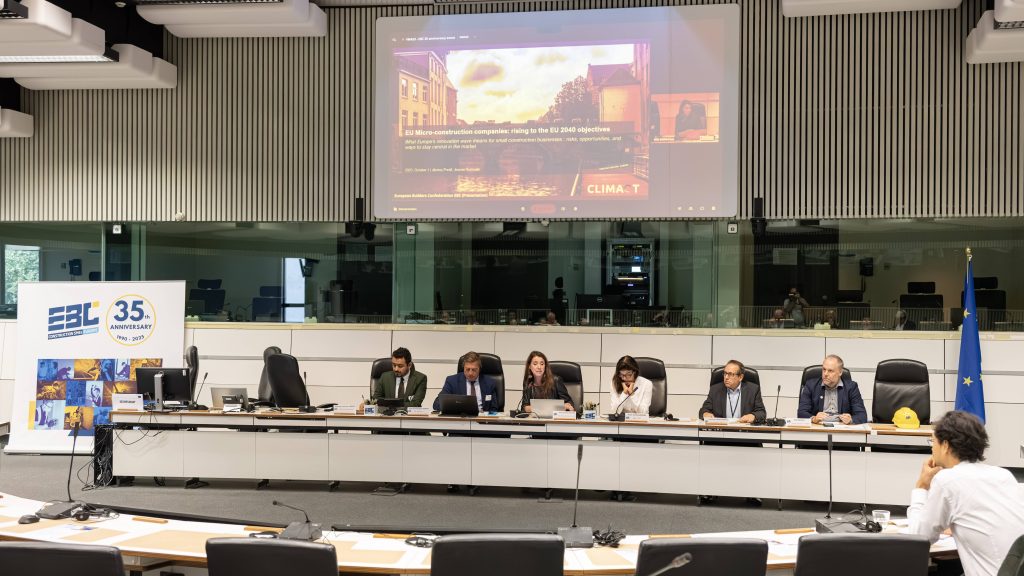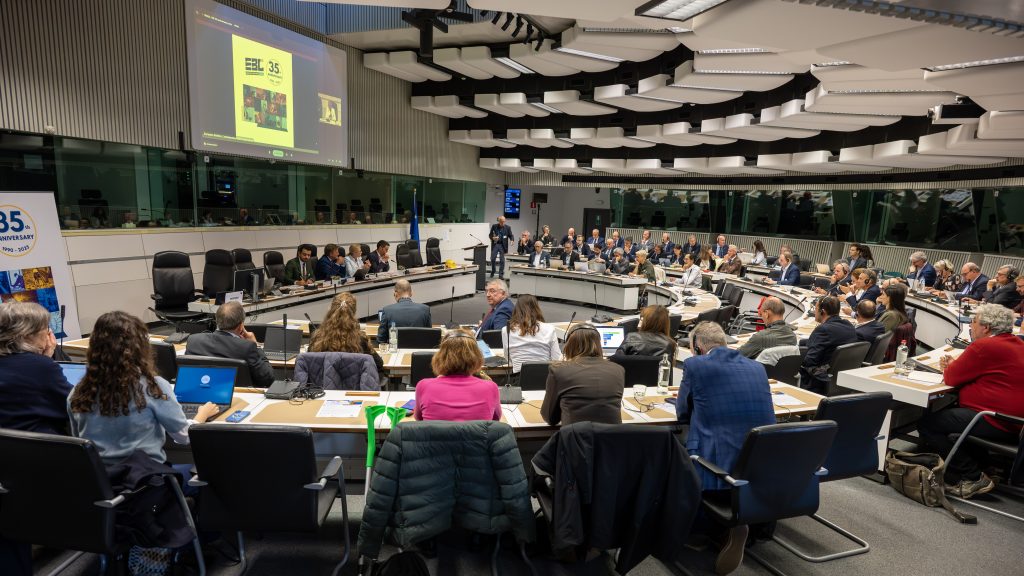
Small builders, big local impact: Marking 35 years, EBC unveils study putting micro construction companies at the heart of energy renovation
October 2, 2025
On 1 October, the European Builders Confederation (EBC) capped its 35th anniversary celebrations at the European Economic and Social Committee with a high-level conference unveiling the study “EU micro construction companies: Rising to the 2040 climate objectives” by Climact. The message from policymakers, social partners and market actors was clear: Europe will hit its climate goals only if its smallest construction firms can fully contribute.
Context of the study: Micro companies make up 94% of construction firms in the EU, employ 46% of the sector’s workforce, yet capture only 31% of added value—showing their potential remains untapped. Nearly 75% of the EU building stock is energy-inefficient, while the energy renovation rate remains at just 1%/year. To meet 2050 objectives, it needs to reach 3–4%/year, equivalent to around 23,000 homes per day. Deep renovations remain scarce; current volumes are insufficient, underscoring the need to scale both staged and one-step deep retrofits.
Climact identifies 4 drivers transforming the residential renovation market structure: an increased necessity of deep energy renovations; one-stop-shops to support and pull market growth; clean heating, ventilation and air-conditioning via individual and collective solutions for healthy homes; and environmentally-friendly materials and circular practices.
In this transition, according to the study, micro construction companies rely on key strengths as specialised expertise; trust-based client relations; agility and flexibility; and local anchoring; and local anchoring. All are crucial to stay central and thrive, as micro companies might need to adjust their operating model, by structuring collaborations to increase capacity through a reconciliation of craftmanship and industrialisation; adopting lean processes with a focus on end-value for customers and replicability potential; and achieving simple digital solutions for widespread adoption and easy market participation. Additionally, to increase and upskill their workforce, a long-lasting sectoral challenge, construction micro companies will require a tailored support to help them better recruit, increase their access and participation to training, and better leverage their entrepreneurship spirit.
Researchers highlight the following practical levers: predictable policy combinations; accessible finance for deep and staged renovations; micro-inclusive one-stop shops; investments in skills and occupational health and safety; and industrialised methods in synergy with craft value.
MEP Isabelle le Callennec (EPP, France) stated: “The central role of micro construction businesses in European energy renovation is undeniable. Extending this observation to the challenges of sustainable and accessible housing, which are currently prioritised in Brussels, European tools could provide real support to municipalities and small local business. We must work together on this.“
MEP Marcos Ros Sempere (S&D, Spain) added: “Tackling the housing crisis in the EU must be a priority in the next Multiannual Financial Framework, including the challenge of energy renovation. The Energy Performance of Buildings Directive is a powerful tool that requires financial efforts from public and private actors to enable micro construction companies and their workers to meet the ambitious targets.”
With a full house, including representatives from the European Commission’s DG Employment and DG Energy, employers’ organisations, trade unions, property owners and architects, not to mention a large number of EBC’s national member federations, EBC President Jean-Christophe Repon concluded: “Today we set a simple test for EU policy: if a two-to-nine-person company can access the market, finance and training it needs, Europe will increase and improve renovation at scale — with quality jobs in every community”.

Prepared by the Belgian consultancy Climact for EBC 35th anniversary, this study dives into how micro construction companies adapt to the EU 2040 energy renovation agenda, translating evidence into concrete levers and illustrating with European use cases.
